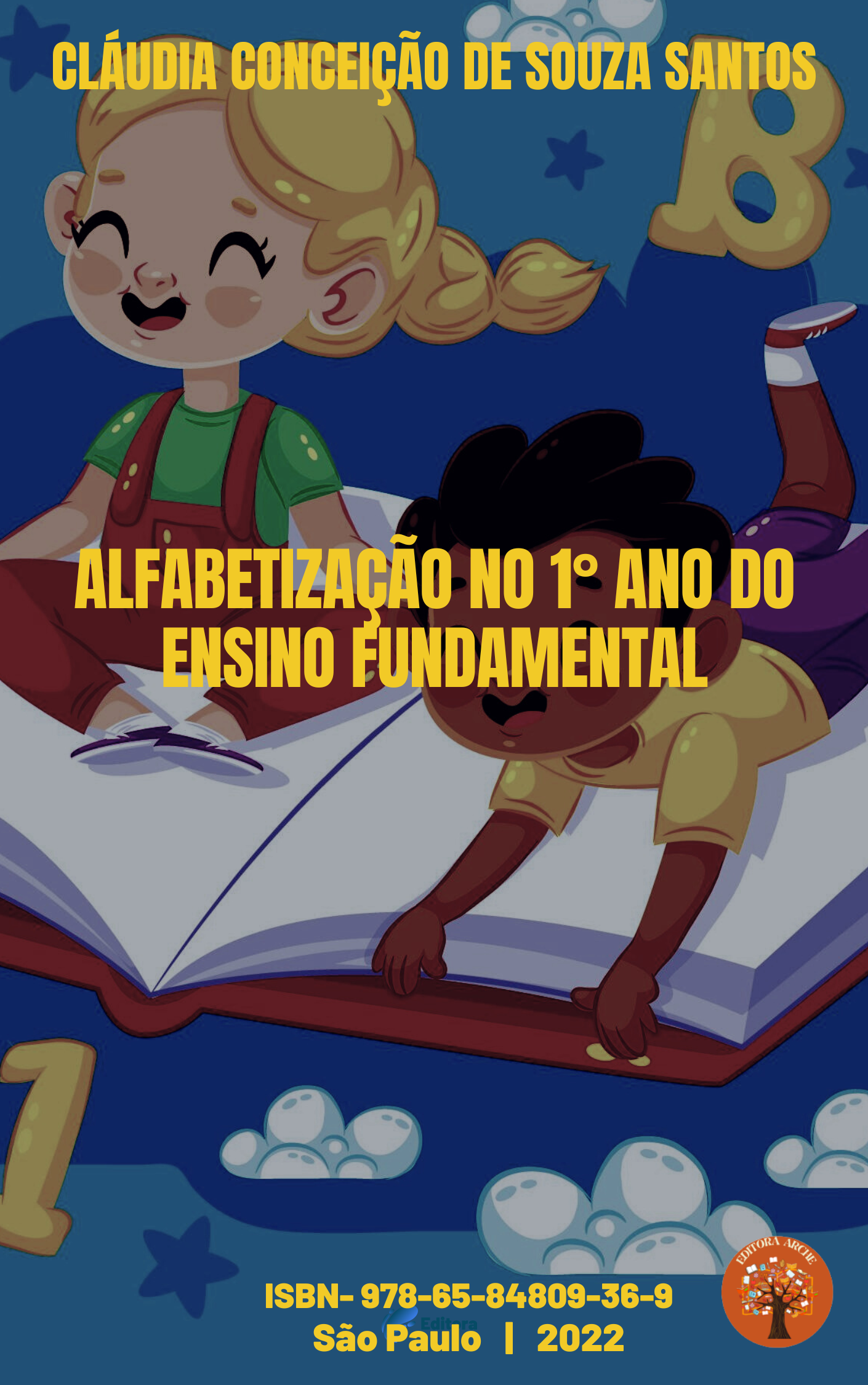LITERACY IN THE 1ST YEAR OF ELEMENTARY SCHOOL
Keywords:
Literacy. Learning. Elementary SchoolAbstract
This book presents some considerations supported by authors who focus on the literacy of children aged 6 to 9 years.
In light of the related production, this book aims to advance literacy training processes.
The same general objective can be reflected in research on the dissemination of educational practices, especially in the first year of nine-year elementary school, emphasizing its contribution to the training of future literacy teachers.
The following search terms were used: “Literacy in the nine years of Elementary School; Literacy experiences in the nine years of Elementary School; nine-year elementary school”.
As a result, we highlight: the existence of theoretical studies that consider the need for reading and literacy in a multilingual context without literacy; we put some reflections on educational practices developed and/or under development from the perspective of literacy, which can generate in the protagonists the desire to learn to speak, listen, read, write, and the scarcity of works focused on this. evaluation perspective with Reflections on the inclusion of six-year-old children in the 1st grade of elementary school.
It was also revealed that the study is silent on the special characteristics of a six-year-old, how he learns, what care he needs and what is taught. Assuming that childhood is a period, a stage lived according to the culture of civilizations, we believe that six-year-olds are children, and games, toys and games remain as pedagogical needs.
The expansion of elementary education from eight to nine years, now a law, which aimed to guarantee conditions for children, especially working-class children, differentiated learning opportunities, access to cultural references historically produced by humanity with an extension of one year. of school education. in the early years of elementary school.
The approval and implementation of Law no. 11,274, of February 6, 2006, began to ensure the right to enrollment for six-year-old children to formal education, forcing families to enroll them and the State to offer compatible care (BRASIL, 2007).
We emphasize that there is a lack of questioning of a compatible service, given the teaching insecurities, structural physical deficiencies of schools, curricula and methodological debates, despite public investment in teacher training, for example. PNAIC (National Literacy Program in the Right Age).
However, despite good intentions, what makes us problematic are the consequences and implications for the development and learning of children achieved through the “benefits” and/or opportunities of this law.
That's why we ask: to what extent is it good for children to plan their entry into an early childhood education that offers a year of Early Childhood Education? Why do we think this is a good opportunity? Has the child heard of this option? If you could choose, what would you do? The school, the official body responsible for this reception and teaching process, was adequately prepared to receive these younger children in terms of furniture, physical space, resources, methodology, language/content taught.
Abramowicz (2002) already emphasized the need to care for children from zero to six years old, taking into account their development and learning characteristics, which is not a recent fact, even before the implementation of the nine-year elementary school law. host institutions and trainers.
However, in the last decade, as a result of the expansion from nine-year elementary education to six-year literacy, initiation is different, which is a strong enough reason to direct us to this quest, about what we did and how we did it. , and the effects of doing so; for children and for the training/effectiveness of literacy teachers.
The author,
Downloads

Downloads
Published
How to Cite
License
Atribuição CC BY
